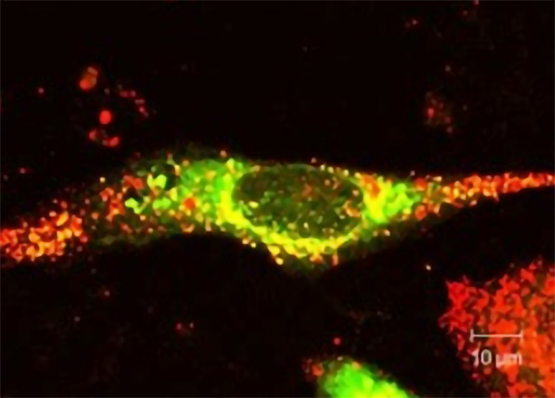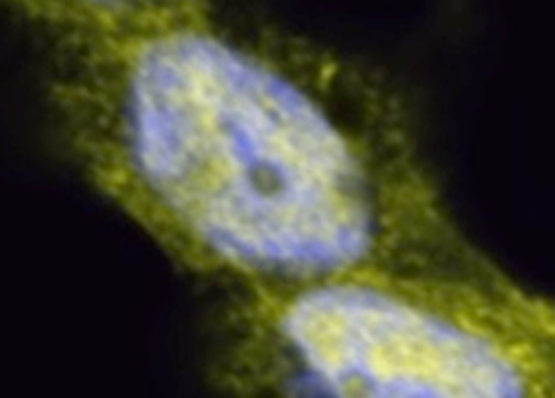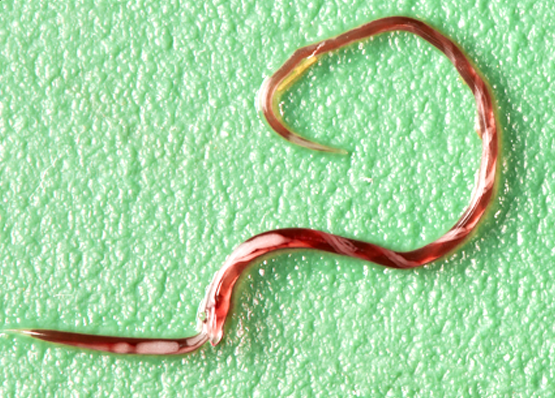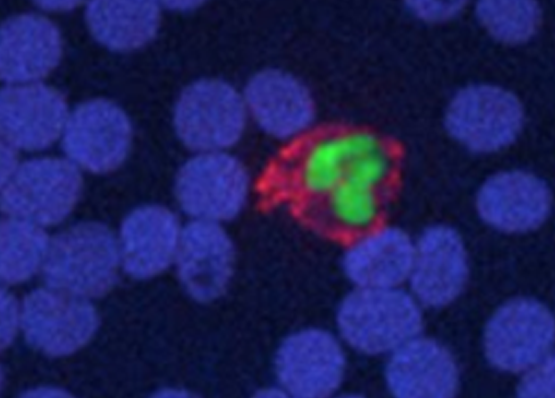Research
The “Infection Biology Research Group” brings together researchers and professionals to promote and facilitate basic and applied infectious disease research at UCVM. It provides a forum for the exchange of ideas and enables collaborations, training, consultation and funding. The Group is founded on interdisciplinary interactions of researchers affiliated UCVM and the Cummings School of Medicine. Priority areas are diagnostics, pathogenesis, genomics, and immunology of infectious pathogens and diseases. Emphasis is placed on animal health and production.

Diagnostics
Studying pathogenesis and cell biology of prion and prion-like disorders to elucidate new therapeutic targets and options for pre-clinical diagnosis. Using cell culture and animal models to study the molecular and cellular biology of prion infections. The long-term goal of Gilch Lab is to translate basic research into novel diagnostic or therapeutic targets to combat prion diseases.
Prion diseases are fatal infectious neurodegenerative disorders of man and animals, and their manifestation can be sporadic, genetic, or acquired by infection. Although mostly rare in incidence, these diseases have the potential to get transmitted within or between species, resulting in endemic and epidemic scenarios. It is critical to understand the molecular and cellular requirements for propagation and transmission of prions to device molecular strategies for controlling these events, and in the long-term, to establish means for effectively assisting infected beings.

Pathogenesis
Innate immune defenses in the epithelial surfaces in mammals, mostly contributed by host defense peptides, including cathelicidins and defensins abundantly secreted by neutrophils and epithelial cells. Of particular interest is to define the function of cathelicidins and defensins in the pathogenesis of infectious diseases and their contribution to host-microbial defenses. The Cobo Lab's approach combines in vitro experiments with cultured intestinal epithelial cells and in vivo models of infectious colitis in mice deprived of cathelicidins and production animals.
The Peters lab is focused on the immuno-biology of chronic infectious diseases, with a special emphasis on vector transmitted and neglected tropical diseases. The lab employs cutting edge multicolor flow cytometry and two-photon microscopy to unravel the intricacies of host-pathogen interactions in the skin and internal organs employing the Leishmania model of parasitic disease. Our work centers on the earliest events in the host response, including inflammatory cell interactions with vector inoculated parasites, and the regulation and expression of immunity to reinfection, including an exploration of the concept of immune memory during chronic infections. The goal of the lab is to develop new therapies and vaccines to combat those infectious diseases that impact the world’s most neglected populations.

Genomics
Dr. De Buck’s research focuses on bovine bacterial diseases, particularly Johne’s disease, mastitis and digital dermatitis. The lab has as strong interest in bacterial genomics and with the use of -omic technologies is studying pathogen transmission, bacterial pathogenesis and host responses to bacterial infections. Using molecular biological approaches, they also are developing novel diagnostic technologies and next-generation vaccines.
Genetic and genomic approaches to investigate and manage drug resistance in parasitic nematodes. The Gilleard lab applies novel molecular approaches to parasite diagnostics and surveillance in livestock, companion animals and humans. We have specific interests in drug resistance and using molecular diagnostics to support more evidence-based and sustainable parasite control. We use a variety of genetic and genomic approaches to develop new diagnostic tools as well as study how drug resistance arises and spreads in parasite populations.

Immunology
The Jenne lab focuses on studying infectious disease, specifically how pathogens (bacteria, viruses) interact with, and activate innate and adaptive immune responses. To study these infectious organisms we use intravital microscopy, a technique that allows us to look directly into the blood vessels and tissues of living animals to better understand how the cells of the immune system recognize and respond to infection. With this approach we hope gain knowledge with regards to how to modulate the immune response, improving clearance of the infection while limiting collateral tissue damage.
Studying innate immune responses elicited against avian respiratory viral infections. With a view of economic and public health importance of respiratory viral infections, Careem Lab's research program focuses on (a) studying mucosal innate immune responses to respiratory viral infections (b) identifying key immunological mediators involved in innate immune responses elicited at respiratory mucosa, particularly in lungs (c) designing infection control strategies based on immune modulators to prevent respiratory viral infections.
